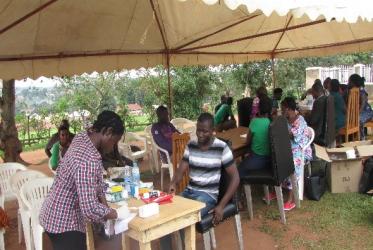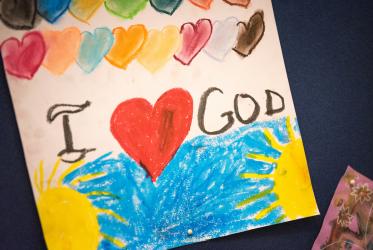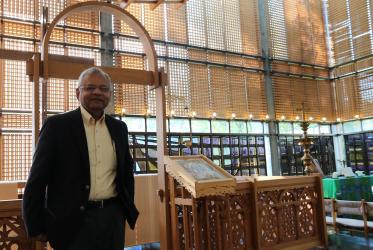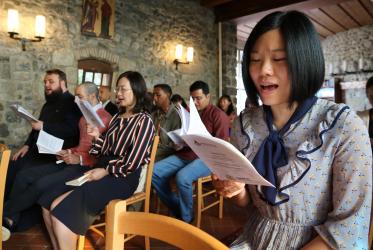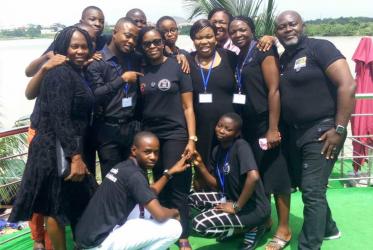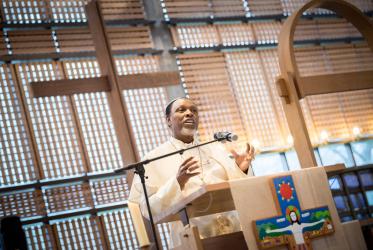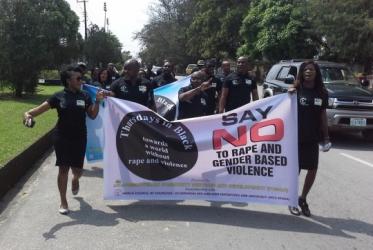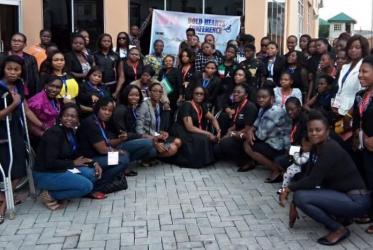Displaying 21 - 40 of 61
09 January 2020
Youth leaders: “We will stop at nothing” to end HIV and violence
17 October 2019
Regional forum in Nigeria centers on banning nuclear weapons
04 September 2019
Young people in Nigeria focus on positive masculinity, femininity
14 December 2018
“Empower our pilgrimage through love”
07 November 2018
Paving the way for ecumenical studies, learning English in Bossey
24 September 2018
New students welcomed at WCC Bossey Ecumenical Institute
13 September 2018
In Nigeria, Thursdays in Black is flourishing
26 March 2018
Walking together against hatred and violence
26 February 2018
In Nigeria, WCC workshops focus on human rights
04 December 2017



